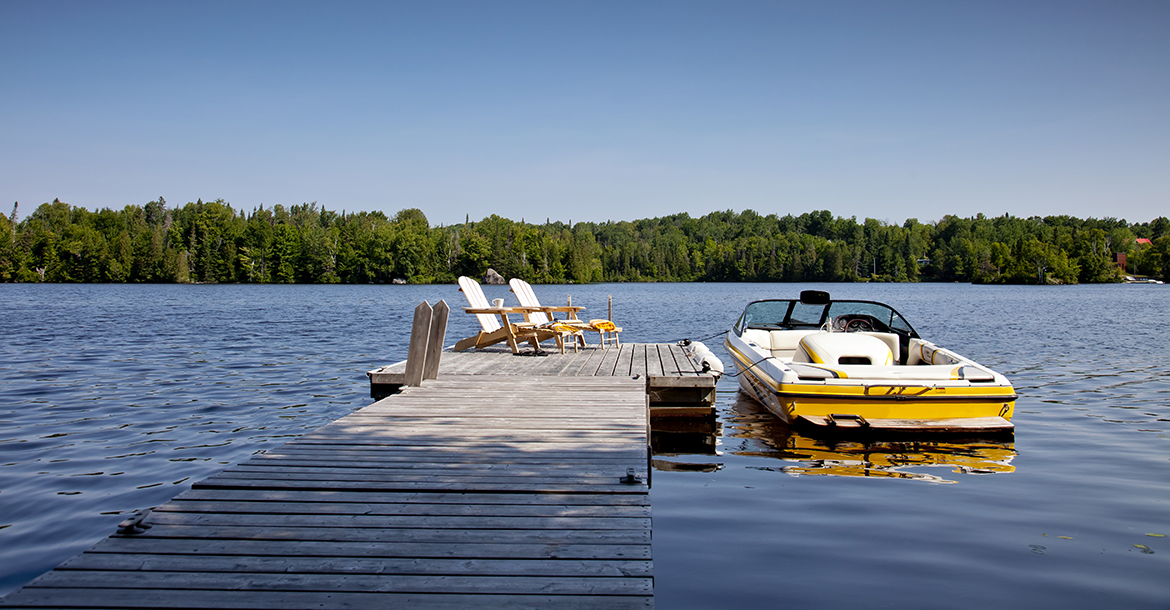Insurance | June 26, 2025
Boating in Wisconsin and Minnesota is a summer tradition—whether you’re fishing, tubing, or simply cruising the lake. But before you launch your boat, it’s important to have the right boat insurance in place.
A solid policy helps protect your watercraft, your passengers, and your finances in case of accidents, theft, or storm damage. Here’s a simple guide to the basics of boat insurance so you can enjoy the water with confidence.
What is Boat Insurance?
A boat insurance policy is designed to protect you financially in the event of damage, theft, or accidents involving your boat. Think of it like auto insurance, but for your time on the water. It helps cover repair or replacement costs and protects you from liability if someone is injured or property is damaged because of your boating activity.
Do You Need Boat Insurance?
In many states, boat insurance isn’t legally required—and that’s true for both Wisconsin and Minnesota. However, that doesn’t mean you can skip it altogether. If you’ve financed your boat, your lender will likely require you to carry insurance. And if you dock at a marina or store your boat at a facility, you may need to show proof of coverage.
Even if it’s not required, having boat insurance just makes sense. It helps you recover from unexpected expenses, and it offers peace of mind every time you head out on the water.
What Does Boat Insurance Typically Cover?
Policies can be customized, but most include these standard coverage types:
- Liability Coverage: Protects you if you’re responsible for injuries or damage to someone else’s property while boating.
- Collision Coverage: Pays for repairs or replacement if your boat is damaged in an accident—whether with another boat, a dock, or a submerged object.
- Comprehensive Coverage: Covers non-collision incidents like theft, fire, vandalism, and weather-related damage.
- Medical Payments: Helps with medical expenses if you or your passengers are injured while on the boat.
- Uninsured/Underinsured Boater: Protects you if you’re involved in an accident caused by someone who doesn’t have adequate insurance.
Some policies also allow you to add extra protection, like:
- Coverage for personal property and equipment kept on your boat
- Towing and emergency assistance
- Trailer coverage
Your insurance agent can help you decide which options make sense for you.
How Boat Insurance Is Priced
Several factors determine the cost of boat insurance. These include:
- The size, age, and value of your boat
- How and where you use it (inland vs. coastal, leisure vs. fishing)
- Where the boat is stored when not in use
- Your boating experience and safety record
- Any safety equipment or features installed on the boat
As a boat owner, you may be eligible for discounts on your insurance premiums. One of the most common ways to save is by bundling your boat insurance with other policies, such as your homeowners insurance. Remaining claims-free for a certain period of time may also qualify you for a discount.
Agreed Value vs. Actual Cash Value
One key decision you’ll make when choosing your policy is how your boat will be valued if there’s a total loss.
- Agreed Value means you and your insurer agree upfront on the boat’s value. If it’s totaled, you’re paid that amount—regardless of depreciation.
- Actual Cash Value takes depreciation into account. If your boat is a total loss, you’re reimbursed based on its current market value at the time of the claim.
Agreed value policies may cost a bit more, but they offer more certainty.
How to Get Started
If you’re shopping for boat insurance for the first time, it helps to work with someone who understands your needs. A local insurance agent can walk you through your options, help you compare quotes, and make sure your policy includes the coverage that matters most to you.
Boating is all about freedom and enjoyment. With the right coverage in place, you can relax and focus on making the most of your time on the water—knowing you’re protected if the unexpected happens.
This article is for informational purposes only. Coverage options and requirements may vary based on individual circumstances and location. Please consult with a licensed insurance professional to discuss your specific needs and policy details.








 Email
Email